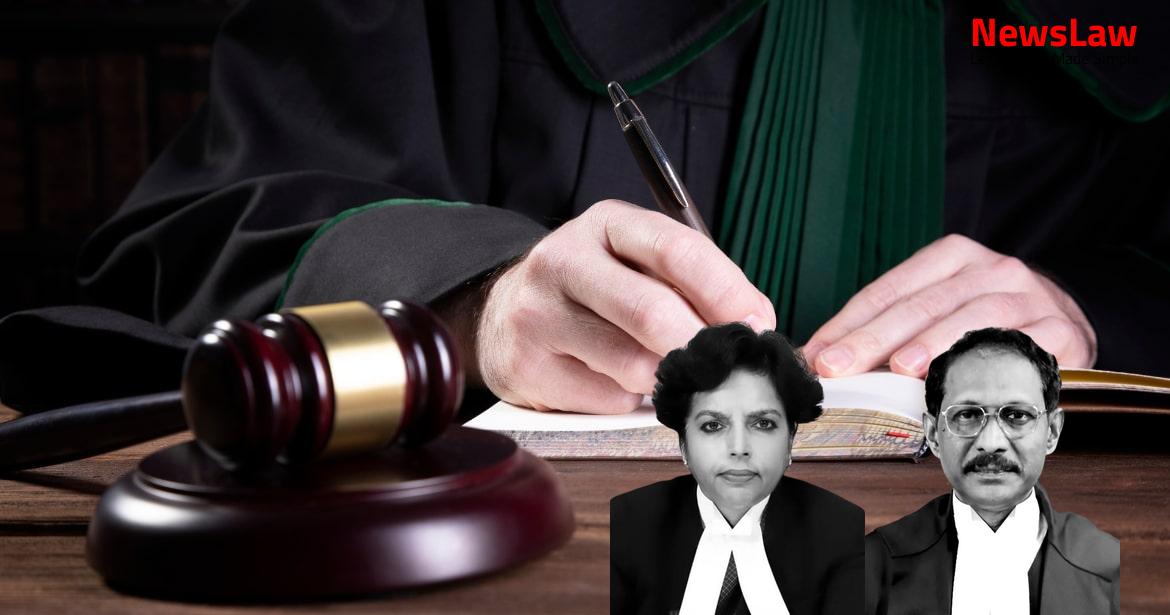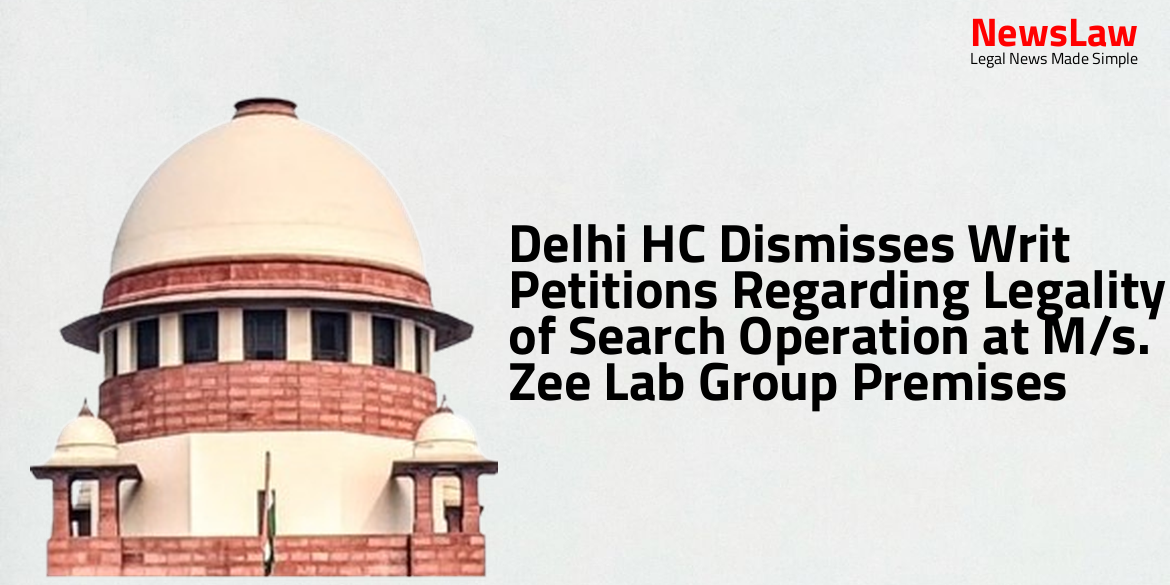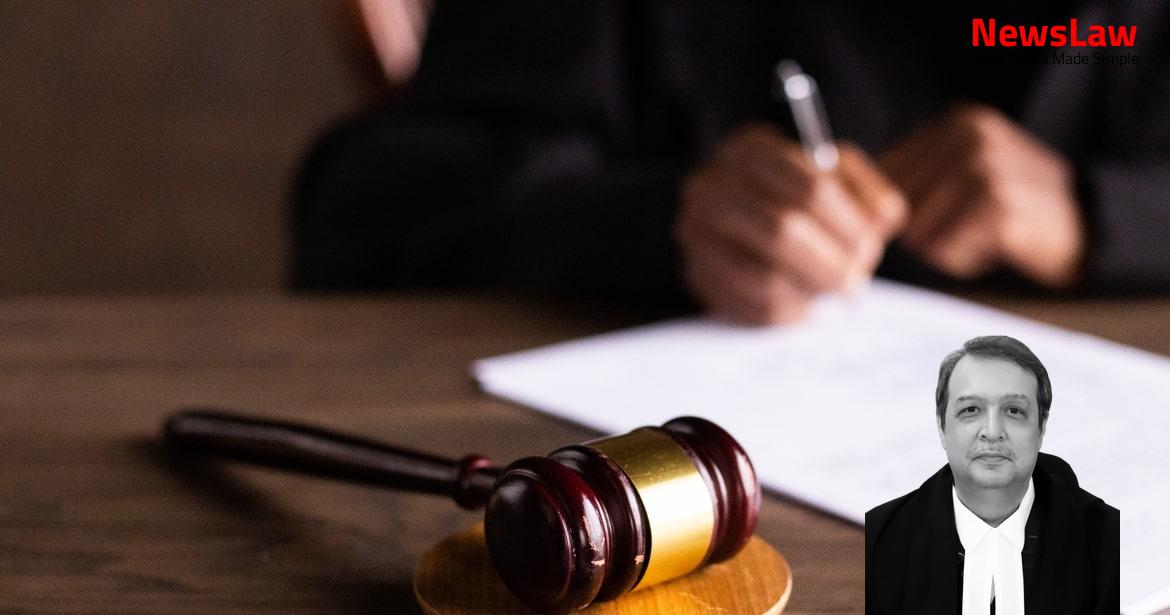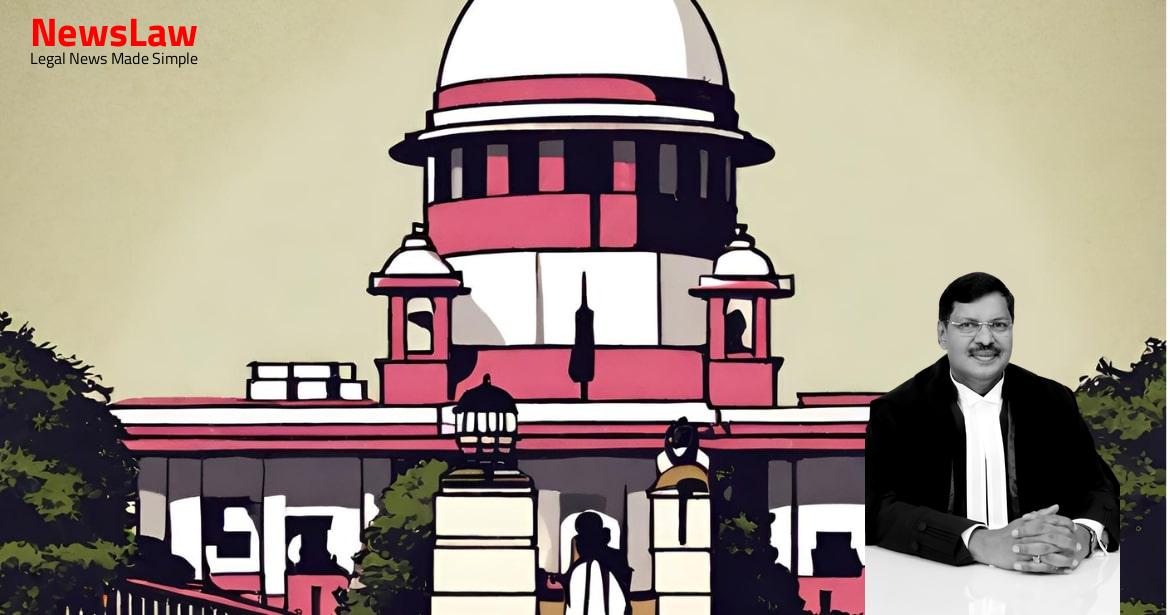Delve into the critical legal analysis of a complex case revolving around the recall of a final decree in a property dispute. The court’s interpretation and application of legal provisions, such as Section 151 of the CPC, in cases of fraud and bias, are pivotal in ensuring fair and transparent judicial proceedings. Understanding the court’s approach to recalling orders obtained through fraudulent means sheds light on the principles of justice and integrity within the legal system.
Facts
- Respondents filed an application for the recall of the final decree in 2020, raising fraud issues for the first time.
- The original suit was filed in 1953 before the City Civil Court in Hyderabad.
- Preliminary decree was passed on 06.04.1959, and the final decree in favor of the appellant was passed on 19.09.2013.
- State of Telangana’s appeal was dismissed, and special leave petitions were also dismissed by this Court in 2022.
- Appellant had a registered assignment deed when the final decree was passed in 2013.
- State’s claim over the property lacked sufficient documentary evidence.
- Application was made for passing a final decree in favor of the appellant for the property in question.
- State of Telangana challenged the final decree in their appeal which was dismissed.
- The title to the suit property was conditional as per the preliminary decree.
- An application for recalling the final decree was allowed by the High Court in 2021.
- The State of Telangana filed separate special leave petitions challenging the orders.
- The appellant mentioned the delay in filing the appeal.
- Multiple applications were filed in 2020 and subsequent years regarding the final decree.
- Appellant acquired the property through an assignment deed executed in 2000.
- Several complicated proceedings followed the original suit over the years.
- Issues in the case remained unsettled even after 60 years.
- Notice of pending proceedings on the subject property was present in the preliminary decree.
- An objection was raised regarding the presiding judge’s involvement in both the appeal and the recall application.
- The State of Andhra Pradesh challenged the order in OSA SR No. 3744 of 2014, contending dismissal of the earlier appeal from Telangana due to delay in filing.
- The Division Bench found no strong reasons for recusal and held that the High Court should have dismissed the application for recall based on delay.
- High Court recalled its final decree dated 19.09.2013, alleging the appellant had obtained it by suppressing information.
- Recalling of the order does not benefit the State of Telangana or the respondents.
- The Senior Judge who passed the judgment had appeared for a party involved in parallel proceedings and had filed an FIR against the appellant.
- Respondents alleged fraud based on non-disclosure of certain orders passed against the appellant.
- Civil Appeal filed by the appellant against the High Court’s decision to recall the final decree.
- Division bench of the High Court dismissed two applications for condonation of delay in filing the appeal on 22.12.2020.
Also Read: Balancing Power and Transparency: Electoral Bonds Struck Down, Disclosure Mandated
Arguments
- (i) The preliminary decree was conditional as it was subject to pending Revenue Court proceedings.
- (ii) The respondents, who were the pattedars of the property, were the owners in possession.
- (iii) The appellant’s earlier application for delivery of the property based on an assignment deed was remanded to the Single Judge and later dismissed for non-prosecution as it was not pursued; they abandoned their original application.
- (i) The conduct of the appellant is being questioned by respondent no. 4 who alleges fraud on the Court in obtaining the final decree in their favor.
- (ii) Respondent no. 4 argues that the affidavit supporting the application for recall was filed without personal knowledge of the facts.
- (iii) Respondent no. 4 claims that the present litigation involving rank outsiders is actually proxy litigation with high stakes due to the value of the property.
- (iv) The civil suit filed by the appellant for injunction in 2007 was dismissed, adding to the background of the case.
Also Read: Recall of Resolution Plan Approval: Legal Analysis
Analysis
- The Court has the power to recall an order obtained by fraud upon the Court.
- Inherent powers under Section 151 of the CPC cannot be used to restrain the execution of a decree by a party who was not a part of the suit.
- Inherent powers can only be exercised when no alternate remedies exist.
- The High Court erred in using Section 151 of the CPC to recall the final decree when alternate remedies were available.
- In cases of fraud or mistakes of the court, the Court may rectify the mistake by recalling the order or passing an appropriate order.
- Justice must not only be done but also be seen to be done.
- The test for bias is whether right-minded persons could consider a real likelihood of bias.
- Courts, including those performing judicial functions, must avoid bias in deciding contentious issues.
- The principle of nemo debet esse judex in propria sua causa and ‘justice should be seen to be done’ apply to judicial officers as well.
- Inherent powers of the Court under Section 151 of the CPC are complementary to specifically conferred powers and are essential for securing the ends of justice.
- Courts can use inherent powers to prevent abuse of process and ensure justice is served.
- Exercise of inherent power should not conflict with procedures in the Code.
- The inherent power under Section 151 CPC does not confer substantive rights to unsettle already decided issues.
- The Court can recall its judgment or order if obtained by fraud on the court or a party to the suit.
- In cases of fraud, the affected party may be directed to file a separate suit to set aside the decree obtained by fraud.
- An appeal can be filed from a decree passed by a Court exercising original jurisdiction.
- An appeal may lie from an original decree passed ex parte.
- No appeal shall lie from a decree passed by the Court with the consent of parties.
- High Court should not have decided the recall application filed by the respondents
- The orders passed had the effect of unsettling proceedings and transactions with a history of over 60 years
- The decision was based on an application filed under Section 151 of the CPC
- The appeal was allowed by setting aside the order dated 21.09.2021 in the specific application
Case Title: MY PALACE MUTUALLY AIDED CO OPERATIVE SOCIETY Vs. B. MAHESH (2022 INSC 854)
Case Number: C.A. No.-005784-005784 / 2022



